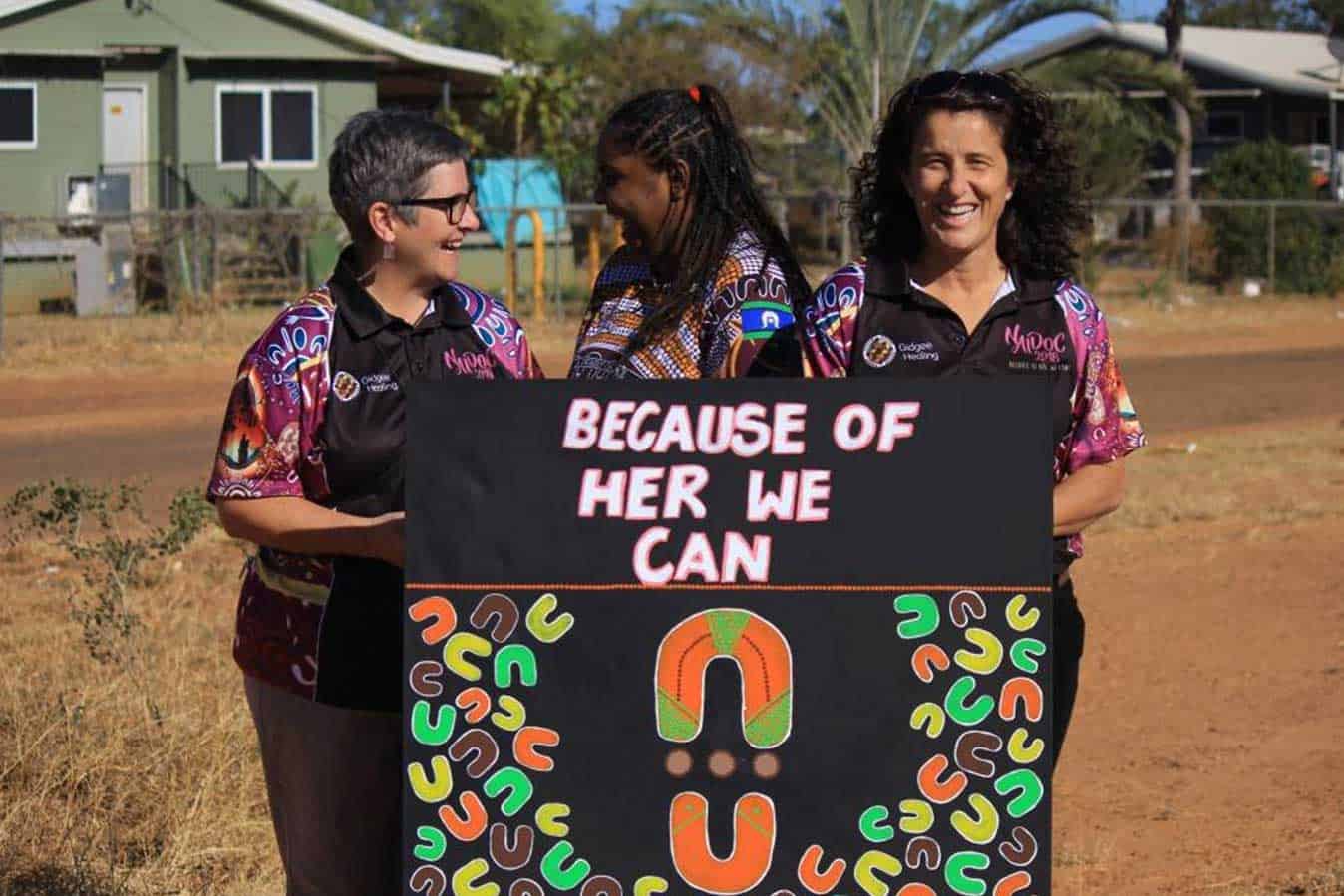Improving the health and welfare of Aboriginal people has always been front and centre for nurse practitioner Lesley Salem.
A fly-in fly-out remote area nurse, Lesley currently works as a generalist and chronic disease NP in Doomadgee, a remote Aboriginal community in far north-west Queensland, as well as nearby Mornington Island.
Her scope of care includes assessing clients, performing diagnostic examinations and tests, and treating and managing them. She also runs a skin clinic at the local school, care at the aged care facility, daily clinics, and care at health promotion days.
In June, she was awarded the Member of the Order of Australia (AM) in the 2022 Queen’s Birthday Honours List for significant service to nursing and to Indigenous health.
She describes feeling humbled by the honour, largely because it was her peers who nominated her.
“I just do the work I love to do and try and make Aboriginal people’s lives better,” she says.
“I’m really grateful for the award and what it’s for because I’ve been trying to get in to see influential people who can help change things up the scale. My dad always said any award you get it’s like giving you a free soapbox in front of the people that matter. All I want to do is use this to open doors with this new government to allow me to say the things I think need doing.”
In remote towns like Doomadgee, Lesley says there is urgent need for more nurses and nurse practitioners to deliver healthcare. Part of the problem is barriers to access. Right now, for example, nurses conduct health checks and still need to wait for a doctor to turn up and sign their approval.
“The majority of people providing care in that area are nurse practitioners. We need to be able to do the things that these communities need us to, like Close the Gap initiatives to provide total care for these people.”
During her career, Lesley has worked across many diverse settings including hospitals, a detention centre, and Aboriginal Community Controlled Health Services.
“I’ve loved everything I’ve done,” she beams.
“To grow as a person and grow in the way you provide care has been wonderful. You can’t just stick with one thing; you need to have your eyes open and everything has taught me something new.
“There wasn’t one area that wasn’t significant in leading me to where I am today, so I’m very grateful for it all. I think the broader your experience the less likely you are to work in a silo and think you’re the only one providing care.”
Nearly 20 years ago, Lesley became the first Aboriginal person to be endorsed as a nurse practitioner in Australia. It still ranks among her greatest achievements.
Yet, at the time, Lesley kept her Aboriginality hidden because she wanted to earn the title on merit, not simply to meet a quota.
Significantly, Lesley has continued to be a strong advocate against racism across the health system and society throughout her nursing career. Regrettably, there is still a long way to go.
“You see it all the time in everything that you do,” she says.
Lesley is currently taking part in a coroner’s inquest examining accusation of racism at the local hospital.
“It [racism] is very much alive and well,” she says.
“You can have bias, and you can think this person [patient] might not do what I want but the minute you verbalise it or act on it, it is racism.”
Reflecting on her career, Lesley, who had the option to pursue medicine, is grateful she found nursing.
“There’s no way I would change the way we nurse, our philosophy and our scope as a nurse,” she says.
“I believe we’re the true healers and we have to stop being slaves, or servants, to any other professions. We are the true healers and have so many abilities and skills. We should not be dominated.”
Lesley argues that nurses need to find their voice and take collective action when it comes to healthcare.
“Nurses should decide what nurses can and can’t do, not the medical profession, not politicians with no idea of what we do. Nurses need to take control in this country and we need to believe that we are super strong and we have the numbers and it’s our voice they should be listening to.”
As more and more Aboriginal and Torres Strait Islander nurses and midwives enter the health system, Lesley remains confident that real change can occur in the health and welfare of Aboriginal and Torres Strait Islander people.
“They’ve got a heavy burden on their shoulders,” she says of early career Indigenous nurses.
“My generation failed to Close the Gap, and try as we might, we still haven’t achieved it. There’s a huge amount on the shoulders of our next generation of nurses and they will be brilliant. They’ve been taught and better prepared and I feel absolutely assured that they will take on the burden more so than we’ve been able to take it on and I’m sure they’ll Close the Gap in life disparity for Aboriginal people.”








